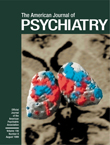Changes in Weight During a 1-Year Trial of Fluoxetine
Abstract
OBJECTIVE: Fluoxetine has been associated with weight loss during acute treatment, but no controlled studies of weight change during long-term treatment with fluoxetine or other selective serotonin reuptake inhibitors have been reported. Weights were assessed for patients whose depressive symptoms had disappeared with acute fluoxetine treatment. Patients were then randomly assigned to continuation treatment with fluoxetine or placebo. METHOD: Patients whose illness had remitted after 12 weeks of treatment with fluoxetine, 20 mg/day, were randomly assigned to receive up to 38 weeks of treatment with fluoxetine or placebo. Weight was assessed at each visit. Change in weight was analyzed during the initial 12 weeks of acute treatment and after 14, 26, and 38 weeks. Relationships between weight change and body mass index and between weight change and appetite change were assessed. RESULTS: During the initial 4 weeks of therapy, a mean absolute weight decrease of 0.4 kg was observed for all patients. Among patients who completed 50 weeks of therapy, the mean absolute weight increase during continuation treatment was similar for both the placebo- and fluoxetine-treated groups. Weight increase was not related to initial body mass index but was related to both poor appetite at study entry and to improvement in appetite after recovery. No patients discontinued therapy because of weight gain. CONCLUSIONS: Acute therapy with fluoxetine is associated with modest weight loss. After remission of depressive symptoms, weight gain for patients taking fluoxetine for longer periods is not different from that for patients taking placebo and is most likely related to recovery from depression.



